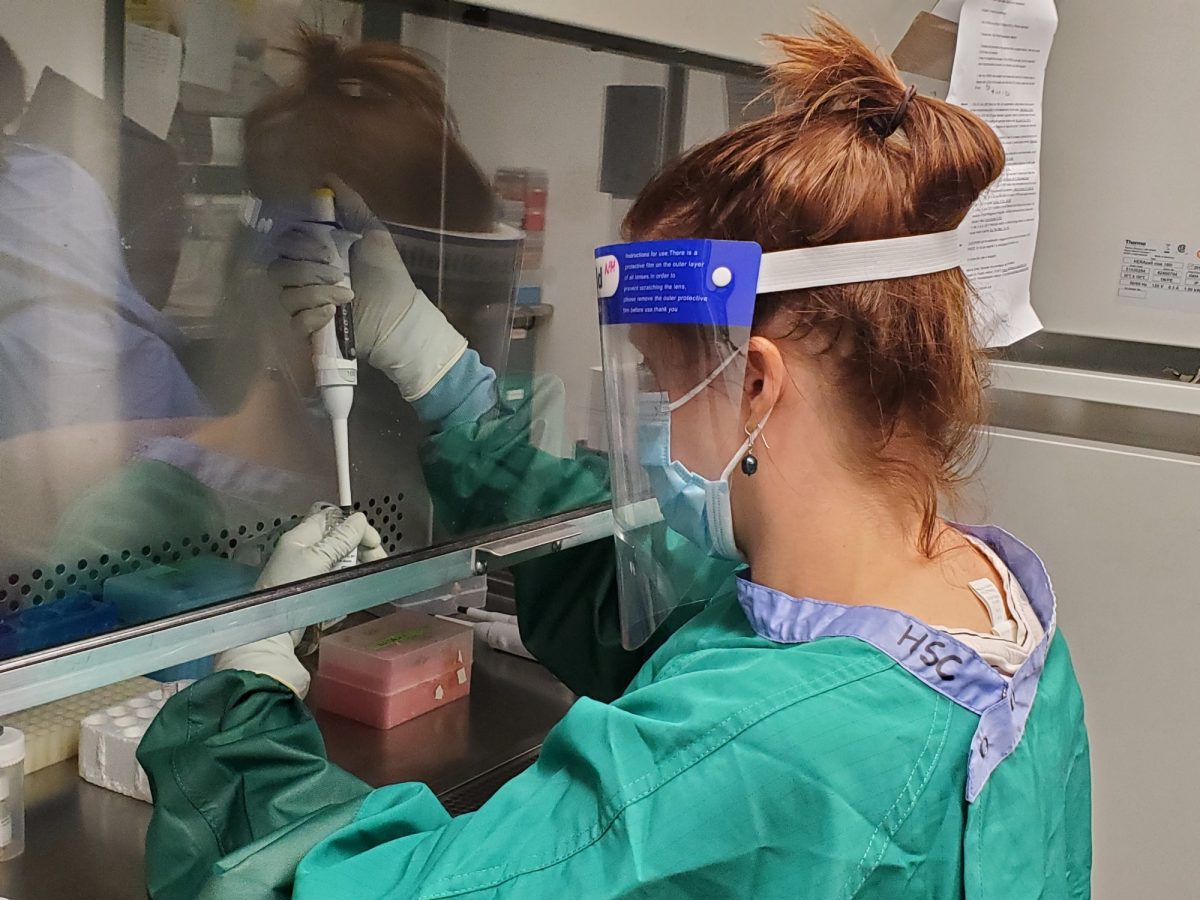
Graduate students in the department of medical microbiology and infectious diseases have been working on COVID-related projects.
Grad students use infectious disease know-how during pandemic
Graduate students in the Max Rady College of Medicine’s department of medical microbiology and infectious diseases have been busy during the pandemic putting their expertise to excellent use.
The students have formed local and international collaborations and worked on COVID-related research, outreach and knowledge translation.
“It’s been exceptional,” said Dr. Keith Fowke, professor and head of medical microbiology and infectious diseases. “The students have really stepped up. They’ve said ‘OK, here’s a global pandemic and I’m a microbiology-infectious disease student – how can I help?’”
Many of the students have been in the lab working on COVID-related projects.
Research projects include one study that tested suitable swabs for COVID-19 to determine if alternatives are available if there’s a shortage. Another study focused on developing a sequencing infrastructure that would enable a national genomic surveillance system for SARS-CoV-2.
“The graduate students saw the need and filled the need for COVID-related projects,” Fowke said. “Graduate students drive research at the University of Manitoba, there’s no question about that. They’re the main mechanism, the main energy and the main sets of hands behind most of the research that occurs at the university.”
Graduate students are also working on COVID-related projects outside of the lab.
Students in the International Infectious Disease and Global Health Training Program, which Fowke directs, were invited to help write articles for a COVID-19 special issue journal. They collaborated on the project with Ramaiah University in Bangalore, India.
Medical students and graduate students collaborated to create the Manitoba COVID-19 Weekly Report. They produced eight newsletters, which addressed clinical questions based on current evidence, and reached about 9,000 health professionals around the world.
Several students have used social media, news outlets and public talks to educate their peers, high school students and communities about COVID-19.
“I really think it brings into focus how important being a researcher in this field is,” said Jasmine Frost, a PhD student. “You have a responsibility to help people understand what’s happening and to help promote accurate information and debunk some of the myths that were circulating, especially at the beginning of the pandemic.”
Students also volunteered to screen people for COVID-19 symptoms at the entrances to the Health Sciences Centre.
“From the students to the professors, we’re all trying to use our knowledge of infectious disease and our research to empower communities around the world,” said Toby Le, a PhD student. “I think the reason why we’re doing COVID projects, and why we’re so driven, is there’s a natural affinity in our department to take what we know about infectious disease and try to use it to empower people that are facing it.”
Visit the department of medical microbiology and infectious diseases’ website for more details about the students’ COVID-related research and for a list of the students involved in the community projects.






